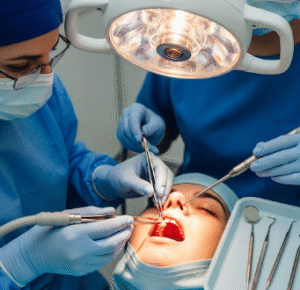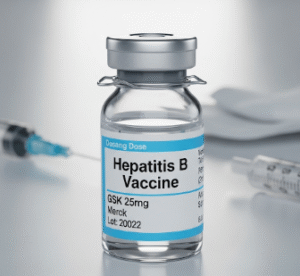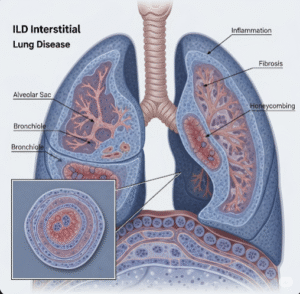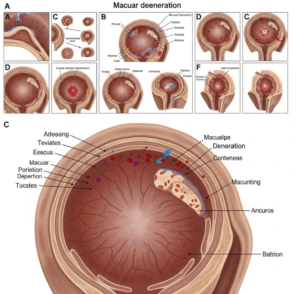South Korea has become a global hub for medical innovation and clinical research, leading advances in biotechnology, pharmaceuticals, and regenerative medicine. But what truly distinguishes Korea’s research environment is its strong commitment to ethics and transparency. Every step — from laboratory experiments to patient trials — is guided by strict ethical standards and government regulations to ensure safety, integrity, and trust in medical science.
Clinical research in Korea operates under the principle that scientific progress must never come at the cost of human dignity or safety.
The Foundation of Research Ethics in Korea
Ethics in Korean clinical research are grounded in international standards such as the Declaration of Helsinki, Good Clinical Practice (GCP) guidelines, and the International Council for Harmonisation (ICH) framework. These principles are built around three key pillars:
• Respect for persons: Protecting the autonomy and rights of all participants.
• Beneficence: Ensuring research aims to maximize benefits and minimize harm.
• Justice: Guaranteeing fair selection, treatment, and distribution of risks and rewards.
Korea integrates these global ethics into its national systems, promoting scientific credibility with moral responsibility.
Regulatory Framework for Clinical Trials
All clinical studies in Korea are regulated by the Ministry of Food and Drug Safety (MFDS), which serves as the national authority for monitoring and approving research involving human subjects.
• Clinical Trial Authorization (CTA): Every trial must receive approval from the MFDS before commencing.
• Ethical Review Board (IRB): Each research institution must have an Institutional Review Board to assess the ethics, safety, and methodology of the study.
• Good Clinical Practice (KGCP): Korea’s GCP aligns with ICH-GCP, ensuring that trials are conducted to the highest ethical and scientific standards.
• Informed consent: Participants must be fully informed of the study’s purpose, risks, and benefits before volunteering.
These safeguards protect participants while fostering innovation in fields such as oncology, neurology, immunotherapy, and stem cell research.
Institutional Review Boards (IRBs): Guardians of Ethics
The IRB system is at the heart of Korea’s ethical oversight process. Each hospital, university, or research center conducting human trials must have a certified IRB.
• Reviews every clinical protocol before patient recruitment.
• Ensures that risks are minimized and benefits are clearly justified.
• Verifies that informed consent forms are understandable and transparent.
• Monitors ongoing studies to detect any ethical violations or safety issues.
Tip: No clinical study in Korea can begin without IRB approval — it’s a non-negotiable step in ethical research governance.
Informed Consent: The Core of Participant Protection
Informed consent is one of the most important ethical principles in Korean clinical research. It ensures that participants voluntarily join a study with a clear understanding of their rights and the research process.
• Information must be presented in simple, culturally appropriate language.
• Participants can withdraw at any time without penalty.
• Consent must be documented in writing and re-confirmed for long-term studies.
• For vulnerable populations (elderly, minors, or incapacitated individuals), legal guardians must be involved in the decision-making process.
This process builds trust between researchers and participants and upholds the dignity and autonomy of every individual.
Transparency and Data Integrity
Ethical research also means transparency and accountability. Korean regulations require all clinical trials to be registered and publicly disclosed.
• Clinical Research Information Service (CRIS): A national database where all clinical trials conducted in Korea are registered.
• Data integrity audits: Regular inspections ensure that data collection, storage, and reporting follow ethical and scientific guidelines.
• Conflict of interest disclosures: Researchers must declare any financial or professional ties that could influence study outcomes.
• Post-trial reporting: Results must be made available, even if the outcomes are negative, to maintain scientific honesty.
These practices guarantee credibility and reproducibility in Korean medical science.
Human Subject Protection Programs
To strengthen participant safety, Korea established the Human Research Protection Program (HRPP).
• Provides ethics training for all research staff.
• Monitors IRB operations for compliance and consistency.
• Conducts on-site inspections to ensure participant rights are respected.
• Requires institutions to maintain emergency medical plans for participants.
This system ensures that human welfare always comes first, no matter how ambitious the research.
Clinical Research Standards in Practice
Ethical standards are not just theory — they are actively implemented in hospitals, universities, and private biotech labs across Korea.
• Double-blind testing: Prevents researcher or participant bias.
• Independent data monitoring committees (DMCs): Supervise clinical safety during trials.
• Regular training programs: Researchers must complete GCP certification before conducting studies.
• Ethical AI and data use: New guidelines are emerging to govern digital health data, AI-based trials, and genomic research.
These practical systems have made Korea one of the world’s most trusted environments for clinical and biomedical research.
Ethics in Advanced Research Fields
As Korea advances into stem cell therapy, gene editing, and regenerative medicine, ethical oversight is evolving to meet new challenges.
• Stem cell regulation: The Advanced Regenerative Medicine Act (2020) mandates safety and ethics approval for all regenerative treatments.
• Genomic privacy: Strict laws protect genetic data from misuse or unauthorized access.
• AI-assisted research: New standards address bias, data protection, and patient confidentiality in digital health studies.
• Cross-border collaboration: Korea ensures that international trials follow both domestic and global ethical rules.
This forward-thinking approach allows Korea to innovate while maintaining the highest level of moral and professional integrity.
Public Trust and Social Responsibility
Public confidence is crucial for ethical research. Korean institutions actively engage communities to build understanding and trust.
• Public seminars and open data platforms promote awareness and education.
• Ethical campaigns emphasize transparency and patient-centered care.
• Citizen participation programs invite feedback on national bioethics policies.
• Media monitoring ensures that scientific findings are reported responsibly.
Korea’s research culture is built on the belief that science should serve society, not the other way around.
Future of Ethical Clinical Research in Korea
As Korea continues its journey toward becoming a biomedical innovation leader, ethical standards will evolve alongside scientific progress. The next phase will focus on:
• Digital ethics: Managing AI-driven clinical trials with fairness and accountability.
• Global harmonization: Strengthening cooperation with WHO, EMA, and FDA standards.
• Patient engagement: Encouraging participants to be partners in research, not just subjects.
• Sustainability: Ensuring that medical progress supports both human and environmental wellness.
With these advancements, Korea’s research system is poised to remain a global model for ethical medical science.
Final Thoughts
Ethics are the foundation of all trustworthy research — and Korea has built its medical innovation on that foundation. Through transparent governance, rigorous oversight, and respect for human dignity, Korea has earned global recognition for maintaining integrity in science.
Every new discovery, from cancer therapies to regenerative medicine, is guided by the belief that progress must always protect people first.
Korea’s clinical research standards remind the world that the future of medicine is not just about technology — it’s about ethics, empathy, and responsibility.













